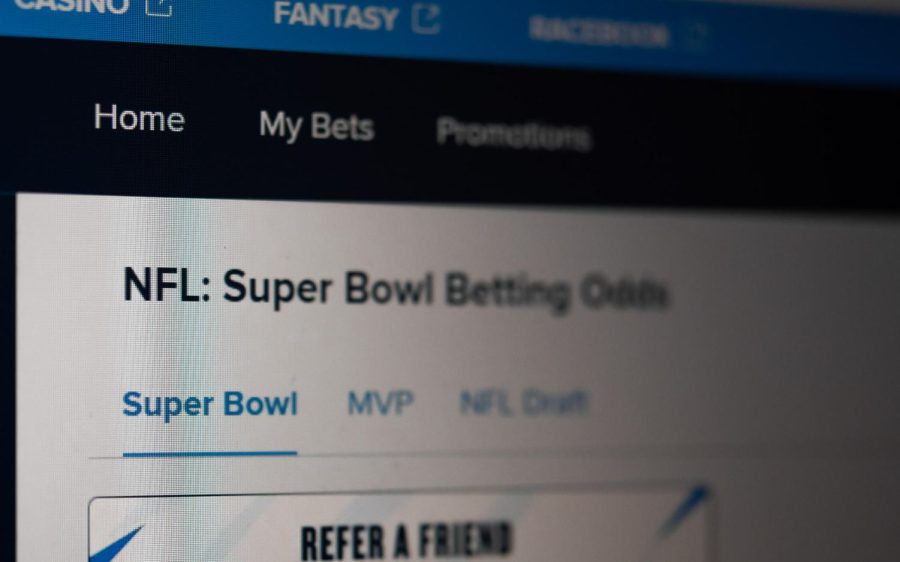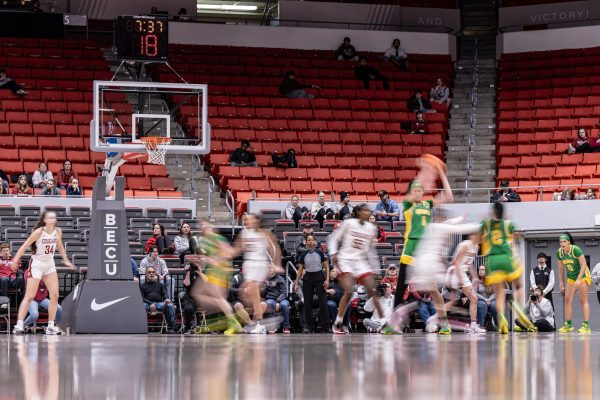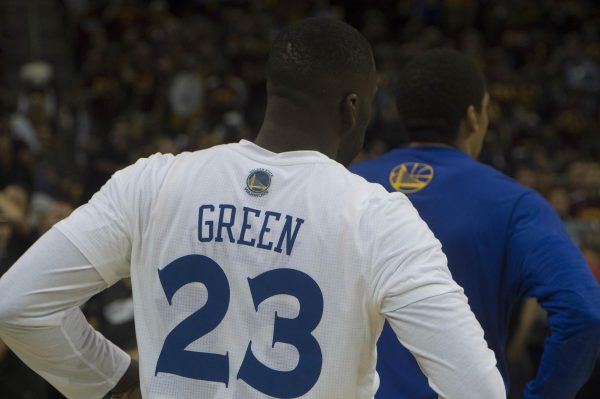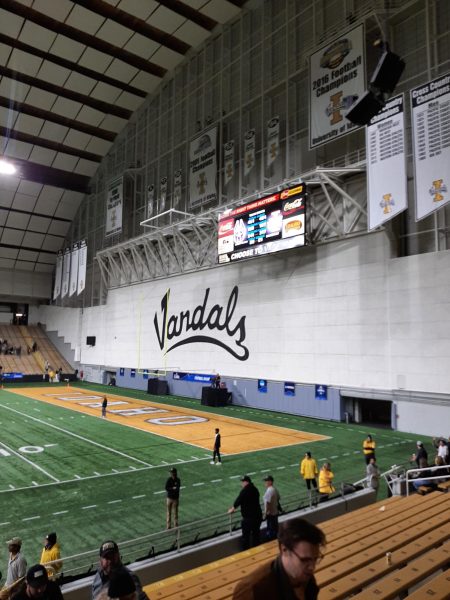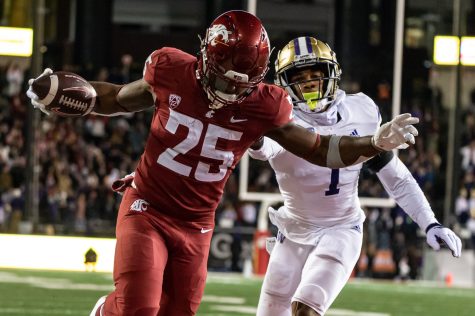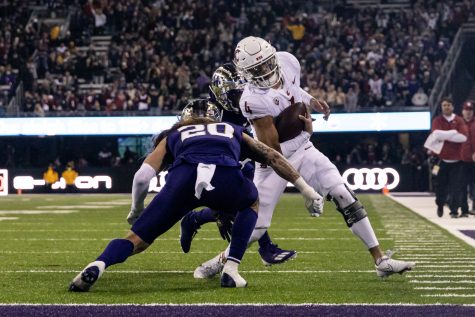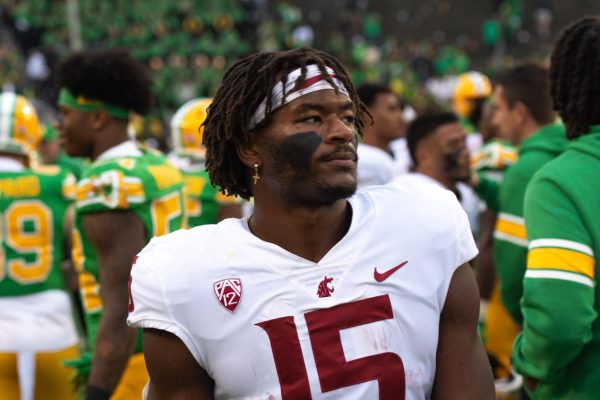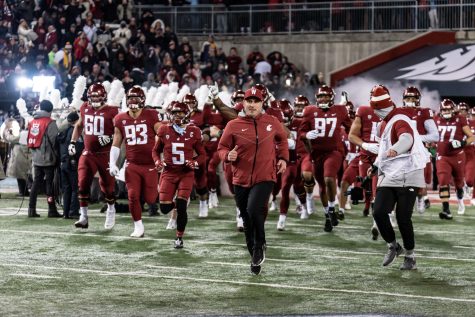Place your bets, just not in Washington
Online sports gambling should be legal in Washington State
The online betting should be legal here in Washington
February 16, 2023
Online sports gambling is a phenomenon sweeping the U.S. with five states legalizing betting services in the past year.
In Jan. 2022, you could legally wager on live sporting events online in 18 states, and by the end of 2023, that number could be upwards of 30 states. However, one of those states is, unfortunately, not our beautiful state of Washington.
Sports betting is extremely popular, it is hard to get through a sitting of television without seeing an ad for DraftKings or FanDuel. With a month left in 2022, online sportsbooks had already received 80 billion dollars in wagers.
The landscape of sports betting is rapidly changing, and state governments around the country are scrambling to figure out how to get in on it.
Right now, in the state of Washington you are only allowed to place wagers at in-person sportsbooks, which are only allowed on reservations of federally recognized Native American Tribes.
Tribes in Washington were already bringing in an absurd amount of money from non-sports gaming at their casinos, and in the past two years sports betting has certainly only added to that.
“During the 2019 fiscal year, Washington’s gambling industry generated $3.462 billion in net gambling receipts,” wrote The washington state gambling commision.
The most important thing to the state is how they are going to tax revenue produced by gambling.
Currently, the tribal casinos are required to share 1.63% of their winnings from gaming at their casinos. In 2016, even before in-person sports betting was legal, the 35 casinos in the state of Washington generated 2.53 billion dollars, According to the American Gaming Association (A.G.A.),.
Therefore, the state received at least 400 million dollars in revenue from casinos in 2016 and likely more. If you believe in a utopian world, the revenue share that the state collects goes only to socially beneficial factors, such as, “charitable donations, community impacts, and smoking cessation program,” A.G.A. wrote.
In the past seven years with the exception of covid i is easy to jump to the conclusion that the funds are possibly going somewhere else a little more descretlely. Although this is just personal speculation.
Either way, it certainly helps the state pay some of the state bill such as education and roads.
for years washington has said that the threat of gambling addiction is a key priority that they are fighting to protect against.
In 2020 Gov. Jay Inslee signed into a law a bill that would allow sports gambling on tribal land.
”This will allow people to participate in a new gaming activity that is safe and well-regulated,” Inslee said.
Clearly, Inslee is trying to signify addiction awareness as his key concern, as it pertains to conversations regarding gambling and shows effort towards fixing the issue.
Gambling companies struggle with the significance of gambling addiction. It feels as if online sportsbooks run as many gambling addiction awareness campaigns as they do ads for their service.
It certainly has not been an easy route for the industry to get to where it is, but it has broken through and not allowing sportsbook apps at this stage feels prehistoric.
According to the Action Network, other than New York, the state where online sportsbooks are legal tax anywhere between 1 – 5% of the winnings. New York legalized online sports betting and instituted a 51% tax on the winnings.
Some of the smaller firms, such as Barstool Sportsbook and Bet365, chose to not even open their books in New York due to the absurd tax numbers, according to Action Network. However, the sheer mass of the larger sports books manage to still turn a profit due to the insane popularity of the industry.
Right now in Washington, people will drive to the nearest casino to place their bets. For many people, this can be a thirty or forty-minute excursion. Most likely, this turns a decent amount of potential betters away who want to casually bet on their favorite team.
Legalizing online books would cut out the middleman, and rapidly increase the accessibility of gambling for the general population, which in turn would hurt the business of the casinos.
I am not saying that being able to bet on sports is some sort of constitutional right, but Washington is so far behind the 8-ball and there is a clear motive as to why.
Even our neighbors down south in Oregon have legalized online sportsbooks, and we usually follow their policy hand in hand.
Oregon only has 10 tribal casinos, which in 2016 had a gross gaming revenue of 510 million. Not a number to laugh at, but not quite the 2.56 billion Washington Casinos pulled in and the same census.
The difference in policy between Washington and Oregon becomes increasingly clear when you realize the disparity in finances.
According to the A.G.A.Oregon’s state government is pulling ‘approximately’ 6 percent of the previous year’s net income. That amounts to around 36 million for road and highway infrastructure.
Money talks, and that is currently preventing the people of Washington from joining in on the fun.

